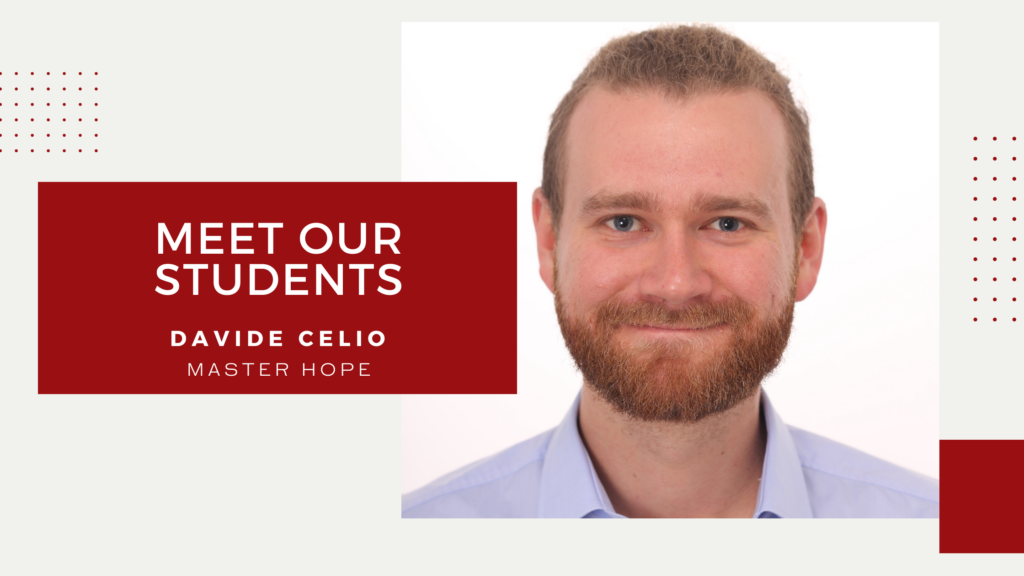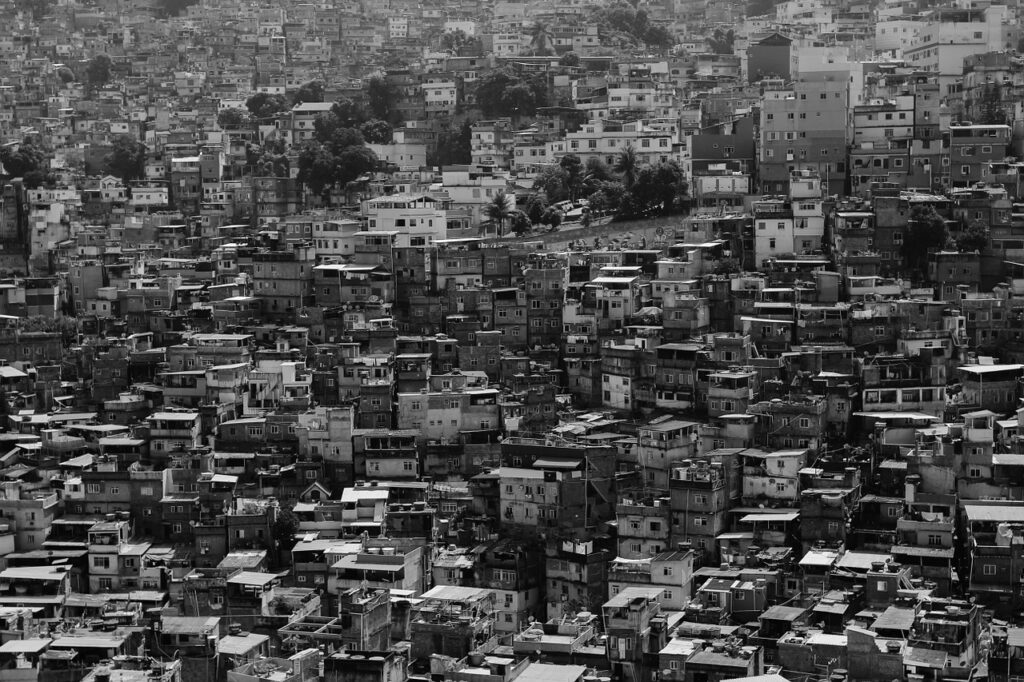In a world where International cooperation is more crucial than ever, the journey of those who dedicate their lives to fostering global partnerships can be both inspiring and enlightening. Through our Master in Humanitarian Operations in Emergencies (HOPE), we pride ourselves on cultivating leaders who are not only equipped with the knowledge and skills to make a difference but are also driven by a deep commitment to creating a more interconnected and equitable world.
Today, we are thrilled to share an insightful interview with one of our exceptional students, Davide Celio, who will start his experience in Solidarity Corp with WeWorld in September!
What inspired you to pursue a Master in Humanitarian Operations in Emergencies at Social Change School, and how is your experience matching your expectations?
Throughout my life, I have always tried not to be indifferent to social inequities and dreamt to play a role in supporting people to access basic services and claim social rights. I have a background in international development and before enrolling in the HOPE Master I had some field experiences in the international cooperation sector. However, I started having a strong interest in humanitarian aid and felt the need to upskill to become a qualified professional prepared to face the challenges of this sector.
For these reasons, I have been deeply attracted by the SCS unique training offer: innovative but proven didactic model, in-presence workshops with high-level lecturers, participation of relevant humanitarian organisations and career support services. Everything I was looking for!
We have already reached half of the Master journey and I could not be more satisfied of my choice. Theoretical learning is continuous and excellent, as well as the practical application through the project work of the knowledge gained in class. I feel I can sincerely state I have considerably improved my comprehension of the humanitarian world, along with my technical understanding of the cycle project management.
How would you describe your interactions with the faculty and staff at Social Change School, and in what ways have the lecturers contributed to your learning and professional growth?
First of all, I am truly appreciating the quality and professionality of the entire SCS staff. The environment is welcoming, cordial, and conducive. The School stood out for flexibility, listening and openness towards suggestions and remarks. The element that struck me the most is the fact that all SCS staff shares a common mission, from the President to the Master Director, and from the course Coordinator to the CDS department. There is an evident commitment in equipping students with the necessary skills and tools to operate in the international cooperation sector.
The lecturers’ enthusiasm has also been quite pleasantly surprising for me, together with their capacity to train and availability to listen students during and after workshops. Indeed, it is also undeniable and remarkable the lecturers’ willingness to share experiences and transmit knowledge to a new generation of aid workers.
How do you envision your career path evolving after completing the Master HOPE program, and what role do you see yourself playing in future humanitarian efforts, according to your experience with the Master itself and Social Change School’s Career Development Service?
During the admission and evaluation interview, I was asked what role I saw myself playing in the humanitarian world. From that moment, it began the building of a foundation for a successful professional path. Now, the CDS is supporting me in the development of a career plan, analysing in detail the characteristics of my profile, elaborating professional goals, examining strengths and areas of improvement, and drafting a mid-term action scheme.
Personally, I have a genuine interest in education and child protection. I would really love to contribute to ensure children’s rights everywhere, particularly access to quality education, protection, participation, and development. During workshops, webinars and weblabs, I am having the chance to meet lecturers with multi-year experience and expertise in these thematic sectors. This is a unique learning opportunity, as well as a special occasion to create a solid professional network.
At the end of the Master, I wish to collaborate with a relevant humanitarian organisation, preferably operating in the thematic sectors of my interest, to apply the knowledge I am gaining during the course. I am convinced the SCS is preparing me for a similar opportunity and will help me to achieve this desire.
As you read through this inspiring interview, we hope you see the potential within yourself to follow a similar path. Our Master HOPE (Humanitarian Operations in Emergencies) is designed to equip you with the essential skills, knowledge, and network to effect meaningful change across the globe. If you are passionate about making a difference and eager to join a community of like-minded individuals dedicated to fostering global partnerships, we invite you to take the next step.



